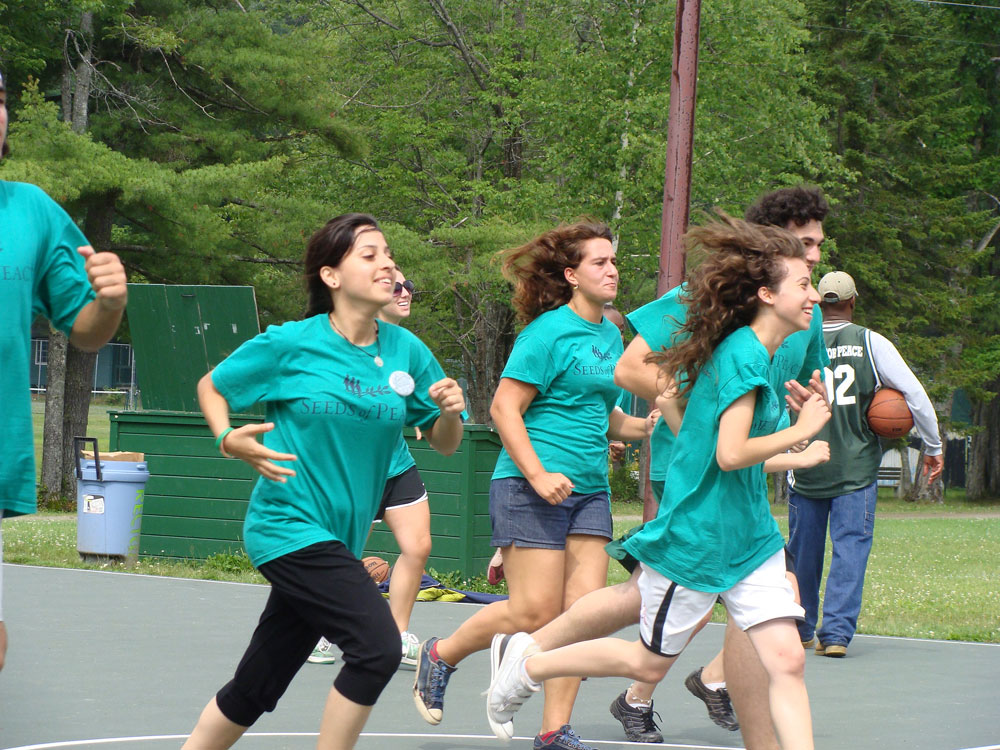
January 6, 2020; Portland Press Herald
For more than 25 years, Seeds of Peace has worked to “inspire and cultivate new generations of leaders in communities divided by conflict.” As a new year began, an internal conflict about the organization’s future became public when a former staff member used her Facebook page to challenge the organization’s leadership for abandoning their mission and violating the very principles it teaches the emerging leaders it trains.
Sarah Brajtbord went from being a “seed,” as the program’s participants are known, to organizational leader, serving as manager of its programs in the United States, which include its core Seeds of Peace Camp in Maine. Last Sunday, she posted that the organization’s board had removed her from that position in order to “stifle the long overdue change that we as a staff have been calling for.”
According to the Portland Press Herald, Brajtbord saw an organization that was “catering to the wealthy, blocking efforts to ‘disrupt the status quo of oppression,’ and failing to put together a board of directors that includes people from lands other than the United States and the United Kingdom.” She cited pressure from donors as motivation for the board’s decision to remove her from her position.
On Facebook. she spelled out her deep concern for the organization’s abandonment of its principles in service of its wealthy supporters. She described her firing as “part of a broader structural abuse of power from our board.”
Sign up for our free newsletters
Subscribe to NPQ's newsletters to have our top stories delivered directly to your inbox.
By signing up, you agree to our privacy policy and terms of use, and to receive messages from NPQ and our partners.
Not listening to staff, who are the experts on the ground, and the Seeds who are and have been calling for Seeds of Peace to change, is an abuse of power. It’s made worse by the fact that they are ignoring leaders on staff who are Seeds themselves.
From Brajtbord’s perspective, in order to fulfill its mission, Seeds of Peace has “an urgent need as an organization to define our understanding and stance towards power and oppression. We must recognize its impact in our work, our organizational structures, the communities we serve, and the conflicts and issues we seek to address. This is the change we are calling for in this next evolution of Seeds of Peace: to move from an organization defining our work as conflict transformation and one that is content with coexistence into one that inspires co-resistance and collective action, building coalitions of leaders across lines of difference who are working together against oppression and towards building a better future for everyone.”
Seeds of Peace Camp spokesperson Eric Kapenga tried on Monday to put the situation in a less confrontational context. “Conflict is common in any organization,” Kapenga said, “particularly so in one that works across lines of difference and encourages difficult conversations. Sarah’s message touches on issues that have been part of ongoing discussions at Seeds of Peace and beyond, many of which are being addressed by a team of staff, board members and alumni.”
In a recent TED Talk, Timothy Wilson, director of the Maine Seeds programs, pointed out that, as with Brajtbord, graduates of the program were becoming organizational leaders. This generational shift brings with it the conflict Seeds now faces: “They are the future of Seeds of Peace; are we willing to allow them to lead at this time?”
Seeds of Peace will now see if it can use the approach to conflict resolution it teaches to solve their own dispute. The programmatic belief is that when those enmeshed in conflict “form relationships and gain insights into the root issues that divide them, they build greater levels of trust, respect, and empathy, which inspire their commitment to work for change at home.” Over the coming weeks, we may see if this works when the problems are inside your own organizational family.—Martin Levine













